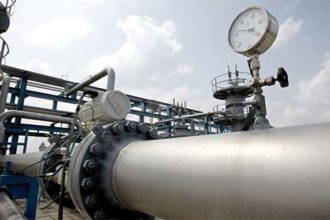Islamabad: After securing a clean chit from the judicial inquiry commission into rigging in the 2013 elections, the government has released details of the losses it claims Pakistan suffered due to the Pakistan Tehrik-i-Insaf (PTI) and Pakistan Awami Tehrik (PAT) demonstrations last year.
The detailed information gathered from various sectors under the guidance of Finance Minister Senator Ishaq Dar claims that the country was deprived of billions of rupees thanks to the political unrest caused by the two protesting parties.
The information has been placed before the National Assembly during its ongoing session.
In Senator Dar’s words, the extended sit-ins staged by the PTI and PAT cost the government implicit and explicit losses.
The list of losses included expenses incurred by the government.
For instance, the supplementary grants amounting to Rs760.5 million, which the government had to release to the ministry of interior to make elaborate security arrangements in the capital during the protests were also mentioned in the information.
“It was a burden on the national exchequer,” noted the finance minister.
Senator Dar, who is an accountant by training, also presented a detailed comparison of international money exchange rates which adversely affected the national currency, while the two parties were on the roads against the government.
“The exchange rate which was Rs98.82 on Aug 5, 2014 depreciated to Rs103.19 on Aug 25, 2014, a depreciation of 4.4 per cent which adversely affected the import bill as well as capital loss on foreign liabilities due to rupee depreciation.”
Explaining further, Senator Dar told the lower house of the parliament that foreign exchange reserves, which the government was hoping would reach $15 billion by end September 2014, did not meet the target. This delay, he said, was because of delayed inflows of $ 2.4 billion.
The minister also argued that the external public debt, which was Rs5,076 billion at the end of financial year of 2014, increased to Rs5,304 billion due to the currency depreciation – he said that this was a loss of almost Rs228 billion.
The capital market also was affected by the protests, said Mr Dar.
“The market was performing well at 29000 KSE index with market capitalization of Rs7.2 trillion. Due to the sit in, the capital market loss occurred and it crashed down to 27,000 level KSE Index with market capitalisation of Rs6.7 trillion.”
Foreign Direct Investment (FDI), as per the calculations of Senator Dar’s ministry, also received a hit as inflows declined from $113.6 million in July 2014 to $92 million in August 2014.
The documents presented to the parliament claimed that the fourth review under the IMF programme was also delayed. However, Senator Dar did add that Pakistan and IMF successfully completed the negotiations on the fourth and fifth review in September, 2014 and the sixth in January 2015.
Predictably, the postponement of the high profile visit of the Chinese president also figured in the list of heavy losses which the government believed it suffered because of Imran Khan and Dr Tahirul Qadri’s protests.
The development agreements worth $46 billion (a figure that the government has quoted extensively) which were to be signed in September 2014 during the Chinese president’s visit were finally signed in April 2015. As a result, the development activities were delayed by six months.





